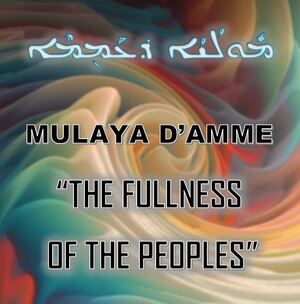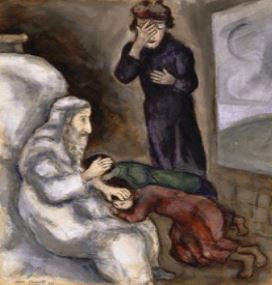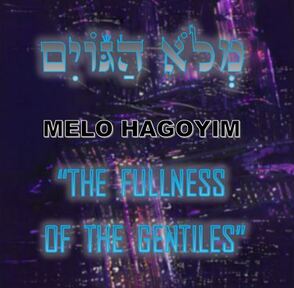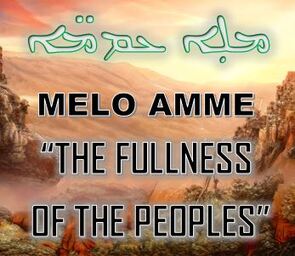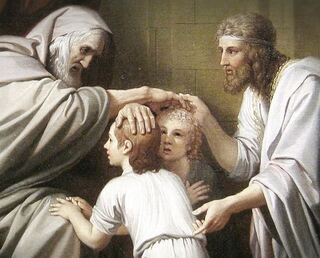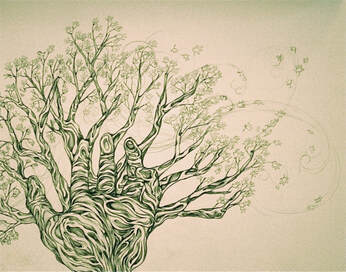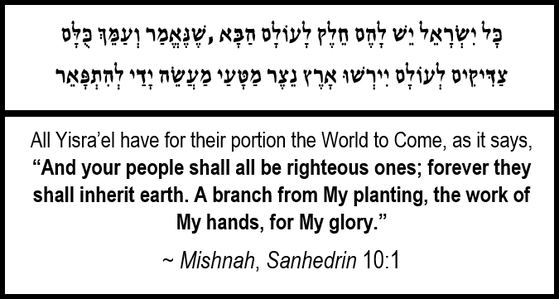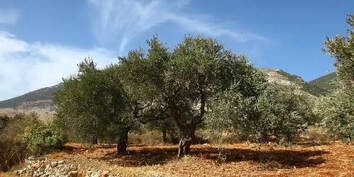THE FULLNESS
by Jeremy Chance Springfield
11/14/2021
The New Testament contains interesting sentiments about Gentiles coming to faith in the Creator of the heavens and earth. The book of Acts chapter 10 and onward deals largely with the ramifications of scores of non-Jews affirming that the Deity worshiped by the Jewish people is the One they should worship, too—coming to such a conclusion through attachment to the merits of the promised Messiah—Yeshua of Nazareth.
To be sure, the Hebrew Scriptures themselves discuss this eventual faithfulness of the Gentile peoples in a few scattered and brief passages. Because of this lack of a step-by-step explanation, just how that newfound faith and worship occurs in light of their unique situation is attempted to be fleshed out in many of Paul’s letters to the various congregations dispersed throughout the Roman empire, who consist of both native Jews and sincere Gentiles.
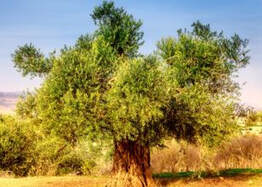
Of the many dispersed passages of his correspondences speaking of what this new normal looked like for the two people groups, perhaps none is so vivid in description yet so easily misunderstood as that which is found in Romans 11. The subject of varied interpretations, that chapter has Paul referring to his fellow Jewish people as a cultivated olive tree, and the incoming Gentiles as being of a wild olive tree whose branches have been mercifully attached to the cultivated tree through the horticultural process of grafting. This process involved some of the original branches being cut off to make place for the wild ones, and those removed were due to their blindness at perceiving Yeshua as the promised Messiah. Romans 11:16-24 records this explanation.

16 Yet, if the first-fruit is consecrated, so also is the form, and if the root is consecrated, so also are the branches,
17 and if from the branches [some] were torn off, and you, you who are an olive tree of the wilderness, were grafted into their place, and became a partaker of the root and of the fatness of the olives,
18 you should not boast over the branches; yet if you boast, it is not you who has borne up the root, but instead, the root has borne up you!
19 And maybe you shall say that the branches were torn off that I, in their place, should be grafted in?
20 Good! These, on account they did not trust, they were torn off, yet you stand by trust! So, do not be exalted in your mind, but instead, you must fear!
21 For if Alaha, concerning the branches that were natural, did not spare them, perhaps also shall not spare you!
22 Behold, therefore, the kindness and the hardness of Alaha: concerning those that fell, hardness; yet concerning you, kindness, if you abide in His kindness, and if not, you also shall be torn off!
23 And they, if they do not abide in the lack of their trust, even they shall be grafted, for Alaha is able to graft them again.
24 For if you who are from the olive tree of the wilderness, of which was your nature - were torn off, and were grafted into that which is not your nature - into the good olive tree, how much more therefore, they, if they are grafted into the olive tree that is their nature?
17 and if from the branches [some] were torn off, and you, you who are an olive tree of the wilderness, were grafted into their place, and became a partaker of the root and of the fatness of the olives,
18 you should not boast over the branches; yet if you boast, it is not you who has borne up the root, but instead, the root has borne up you!
19 And maybe you shall say that the branches were torn off that I, in their place, should be grafted in?
20 Good! These, on account they did not trust, they were torn off, yet you stand by trust! So, do not be exalted in your mind, but instead, you must fear!
21 For if Alaha, concerning the branches that were natural, did not spare them, perhaps also shall not spare you!
22 Behold, therefore, the kindness and the hardness of Alaha: concerning those that fell, hardness; yet concerning you, kindness, if you abide in His kindness, and if not, you also shall be torn off!
23 And they, if they do not abide in the lack of their trust, even they shall be grafted, for Alaha is able to graft them again.
24 For if you who are from the olive tree of the wilderness, of which was your nature - were torn off, and were grafted into that which is not your nature - into the good olive tree, how much more therefore, they, if they are grafted into the olive tree that is their nature?
This notion of Israel as an olive tree is founded in Hebrew Scripture, mentioned in two prominent passages, the first of which is Jeremiah 11:16 shared here, and the second of which will be dealt with later in this study.
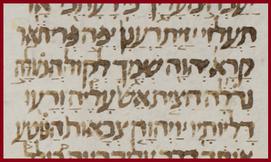
YHWH has called your name “Beautiful Green Olive Tree of Formed Fruit.” With the sound of a great noise I have kindled fire upon it and broken its boughs.
It is in this special foundation that one of the most curious phrases in Paul’s writings are set. As the chapter develops and Paul speaks of the general rejection of Yeshua as the valid Messianic candidate by most of his countrymen, and its spiritual significance, he makes a statement in 11:25 that has suffered all manner of interpretations over the centuries.
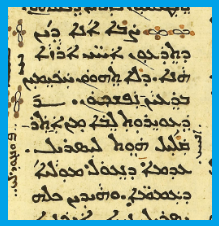
Yet, I am desiring that you recognize, my brothers, this secret, that you not be wise in your own thoughts, that blindness of heart for a little space has happened to Eesra’el, until there shall enter in “the fullness of the peoples.”
The phrase “the fullness of the peoples,” or as it is more popularly rendered in most English translations: “the fullness of the Gentiles,” is a phrase that has suffered under the limiting vision of teachers of dispensationalism in Christianity and teachers of the Two House theology in Hebrew Roots communities. Unfortunately, the true import of the phrase has nothing really to do with either of those common interpretations. Rather, in order to appreciate what Paul was actually teaching by this use of “the fullness of the Gentiles,” one needs to view the details of Romans 11 through the lens of Torah and its Jewish interpretation. Paul, as a rabbinic Pharisee, was presenting an idea to the believers in Rome that is thoroughly founded in the ancient Jewish interpretation of the Torah.
Once the proper background is presented, the reader will be able to appreciate the intent behind these mysterious words with the same insight in which they were originally presented.
I have translated the above passage from the Aramaic of the Peshitta New Testament text. In that language, the phrase is MULAYA D’AMME “the fullness of the peoples.” The term AMME is the plural for AMMA, and is a generic term for “people,” but is usually used in the context to refer to peoples other than the Hebrew people. In short, this term could legitimately be rendered in traditional interpretation as “Gentiles.”
Once the proper background is presented, the reader will be able to appreciate the intent behind these mysterious words with the same insight in which they were originally presented.
I have translated the above passage from the Aramaic of the Peshitta New Testament text. In that language, the phrase is MULAYA D’AMME “the fullness of the peoples.” The term AMME is the plural for AMMA, and is a generic term for “people,” but is usually used in the context to refer to peoples other than the Hebrew people. In short, this term could legitimately be rendered in traditional interpretation as “Gentiles.”
Again, this phrase has been interpreted in many different ways by sincere believers, resulting in skewed conclusions that have drastically influenced both Christian and Hebrew Roots doctrines of events in the grand plan of the Creator concerning His people.
The truth is that Paul is referencing a passage from the Torah, and specifically, a phrase found in the words of Jacob just before his earthly passing. In Genesis 48, we read about Jacob’s son, Joseph, coming to his ailing father and presenting his own two sons—Ephraim and Manasseh—before the patriarch to receive a special blessing for their future.
The immediately pertinent information is found in verses 13-14, and 17-19.
The truth is that Paul is referencing a passage from the Torah, and specifically, a phrase found in the words of Jacob just before his earthly passing. In Genesis 48, we read about Jacob’s son, Joseph, coming to his ailing father and presenting his own two sons—Ephraim and Manasseh—before the patriarch to receive a special blessing for their future.
The immediately pertinent information is found in verses 13-14, and 17-19.
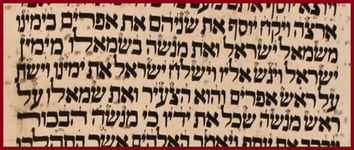
13 And Yosef took the two of them—Efrayim in his right [hand]—from the left of Yisra’el—and Menashsheh in his left [hand]—from the right of Yisra’el—and drew them near unto him.
14 And Yisra’el stretched out his right [hand] and set it upon [the] head of Efrayim, and he was the younger, and his left [hand was] upon [the] head of Menashsheh—aware of his hands—for Menashsheh was the firstborn.
14 And Yisra’el stretched out his right [hand] and set it upon [the] head of Efrayim, and he was the younger, and his left [hand was] upon [the] head of Menashsheh—aware of his hands—for Menashsheh was the firstborn.
. . .
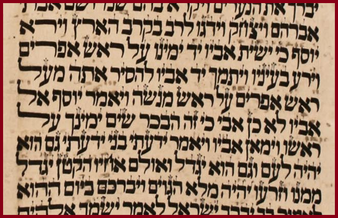
17 And when Yosef saw that his father set [his] right hand upon [the] head of Efrayim, then it was evil in his eyes, and he grabbed [the] hand of his father to remove it from upon [the] head of Efrayim, unto [the] head of Menashsheh.
18 And Yosef said to his father, “Not so, my father! For this is the firstborn. Set your right [hand] upon his head!”
19 And his father refused, and said, “I know, my son, I know. He also shall become a people, and he also shall be great. And yet, his brother, the younger, shall be greater than he, and his seed shall become [the] fullness of the Gentiles.”
18 And Yosef said to his father, “Not so, my father! For this is the firstborn. Set your right [hand] upon his head!”
19 And his father refused, and said, “I know, my son, I know. He also shall become a people, and he also shall be great. And yet, his brother, the younger, shall be greater than he, and his seed shall become [the] fullness of the Gentiles.”
As verse 19 shows, Jacob first spoke this phrase in his explanation for why he crossed his hands in the blessing of Joseph’s sons. It was a prophetically inspired act that recognized the future of Ephraim as one through whom the Gentiles would be blessed.
The phrase Jacob spoke in the Hebrew was MELO HAGOYIM.
This phrase was translated into Aramaic when the Peshitta Tanakh version was made, and it was rendered in it as MELO AMME—essentially the exact same vocabulary phrase (altered due to conjugation) as what Paul wrote in his letter to the congregations in Rome, where he worded it as MULAYA D’AMME! This shows us for certain that what Paul wrote hearkened back definitively to the context of Genesis 48.
It is important to understand the Torah link to what Paul wrote, for when that link is established, it provides the key to correctly interpret the context of Paul’s words in Romans 11. The phrase “the fullness of the peoples / Gentiles” is set in the context of Jacob’s prophetic words about the future calling of Israel in Genesis 48.
In fact, we are told in Genesis 48:8-9 that the context is that of blessing his grandsons.
In fact, we are told in Genesis 48:8-9 that the context is that of blessing his grandsons.

8 And Yisra’el saw the sons of Yosef, and said, “Who are these?”
9 And Yosef said to his father, “These are they whom Elohim gave to me in this [place].” And he said, “You must bring them, please, unto me, and I shall bless them.”
9 And Yosef said to his father, “These are they whom Elohim gave to me in this [place].” And he said, “You must bring them, please, unto me, and I shall bless them.”
There is nothing in the context of Genesis 48 to suggest distinct dispensations like the Christian interpretation has largely understood it, and neither are we to understand this as some form of Two House concept, but rather, the blessing of these two sons for their future calling.
In fact, the text itself tells us what is truly happening if we backtrack just a few verses to Genesis 48:5.
In fact, the text itself tells us what is truly happening if we backtrack just a few verses to Genesis 48:5.

“And now, your two sons—those born to you in [the] land of Mitzrayim before I came to you—they are mine: Efrayim and Menashsheh. As Reuven and Shimon, they are mine.”
These words illuminate for us what was really occurring in this blessing: adoption was taking place! Ephraim and Manasseh were officially becoming sons of Israel! This act of adoption brought them into the family tree of Israel fully. This was essentially a conversion ceremony through the means of adoption. Therefore, himself viewed as a convert by way of adoption, Ephraim’s seed would also bring in Gentile converts to the Hebrew people.
This is the proper context of the chapter and is also the proper context in which Paul was making his own assertions to the Gentile believers of Rome in Romans 11.
The Talmud, in tractate Pesachim, brings this idea forth as an explanation of Hosea 2:25 (verse 23 in English versions).
This is the proper context of the chapter and is also the proper context in which Paul was making his own assertions to the Gentile believers of Rome in Romans 11.
The Talmud, in tractate Pesachim, brings this idea forth as an explanation of Hosea 2:25 (verse 23 in English versions).
As time passed after Israel conquered the land of Canaan and the twelve tribes settled in, there came a scattering of the tribes into the Gentile lands, and Ephraim was the largest of those tribes to go into exile. Through the presence of Israel among the nations, faith was preserved and an environment for hearing and learning truth was fostered, so that with the preaching about Yeshua in the first century, the scattered Hebrew enclaves around the Roman empire began to also see Gentiles, curious about this candidate for the Messiah, filter into the synagogues to learn more about how they could partake of the blessings being poured out upon Israel.
This access to the true faith for the Gentiles was enabled by attachment to Yeshua as the Messiah. This is foreshadowed through the actions of Jacob when he blessed Ephraim and Manasseh in the placement of his hands. Although the two lads were positioned in front of him so that his extended right hand would touch the elder (Manasseh) and his extended left hand would touch the younger (Ephraim), he is recorded to have crossed his forearms and set his right hand upon Ephraim and his left hand upon Manasseh. This bizarre movement symbolized the method through which the Gentiles would come into the faith: through the act accomplished upon the cross by Yeshua!
The text of Genesis 48:10 tells us an important detail in all of this.

And [the] eyes of Yisra’el were dimmed from age, [that] he was not able to see. And he drew them near unto him, and he kissed them, and he embraced them.
This blindness did not prevent Jacob from seeing with prophetic eyes, so that his hands landed upon the heads of the boys in proper placement. It is important to process this factor correctly, for it is the reason Paul speaks of the “blindness” that has come upon Israel in Romans 11:7.
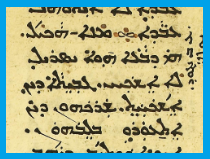
What then? That which Eesra’el was seeking was not found, yet the select found it, but the remainder were blinded in their hearts.
This unfortunate blindness is shown in context to be the carrying out of a divine plan. It was a necessary reality to bring about the future inclusion of Gentiles into the people of Israel. We were similarly told in Genesis 48:17 that the arm-crossing act was viewed as “evil” in the eyes of Joseph, and he sought to stop the hands of his father from their intended goals, but was corrected by Jacob’s prophetic words.
When we understand this aspect, we see that the true “blindness” in Genesis 48 was not with Jacob, but with Joseph!
This blindness to the significance of the Messianic entryway for the Gentiles will one day be healed, and Israel will see with proper sight. This is made clear in Hosea 14:6-7.
This blindness to the significance of the Messianic entryway for the Gentiles will one day be healed, and Israel will see with proper sight. This is made clear in Hosea 14:6-7.
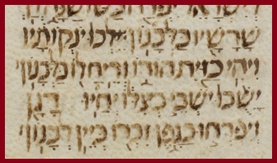
6 His twigs shall extend, and his splendor shall be as an olive tree, and his scent as Levanon.
7 Those dwelling in his shade shall return; they shall be vivified grain, and they shall grow as the vine; his renown as wine of Levanon.
7 Those dwelling in his shade shall return; they shall be vivified grain, and they shall grow as the vine; his renown as wine of Levanon.
The natural olive tree, while having had some of its branches broken, will flourish once again in full, and we even read here of a “return” and revivification of the people! This detail shows us that Paul’s thoughts were aligning with the concepts of the Hebrew Scriptures, and establishes his initial words to this topic, recorded back in Romans 11:1.
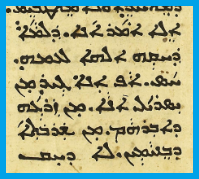
But I say, ‘Perhaps Alaha ostracized His people?’ Forbid it!! For even I am from Eesra’el! I am from the seed of Awraham, from the tribe of Benyamin!
The Holy One did not utterly banish His people by any means but is fulfilling His prophetic promise made through Jacob so long ago. In fact, Paul’s question here of ostracization and his subsequent mention of Israel as an olive tree with broken branches is very likely a reference to a detail concerning the area of the Roman empire to which he was writing. Just south of Rome proper, in a geographical location resting just off the tip of the “boot” of Italy, sits the island of Sicily, upon which is the ancient city of Syracuse.

During the time of the Greeks, Syracuse famously used a method known as Petalism, wherein was determined who should be banished by having names of the potential candidates for exile written by voters upon none other than olive tree leaves. The candidate with the most olive tree leaves bearing their name was then banished. However, unlike some ancient judgments of exile, this banishment only lasted for a specific time: in this case, five years. After the period of exile was full, the banished ones were free to return to Syracuse. And so, we can see that Paul’s question concerning if Israel had been ostracized fits so well with the contextual imagery he proceeds to present. Even in the midst of not accepting the Messianic method at work, Israel was still to find mercy in due time.
The Mishnah addresses this idea based on an interpretation of a quote from Isaiah 60:21, and its sentiment likely informed the conclusion to which Paul himself arrived concerning this situation.
This context of restoration from exile and possessing a portion in eternity appears to be what Paul meant in Romans 11:26-27 that their return will be truly glorious.
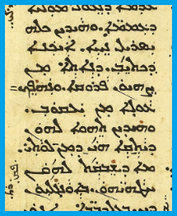
26 And then shall all Eesra’el live, as it has been written: “From Tzehyun shall come the Deliverer, and He shall turn away iniquity from Yaqub.
27 and then shall be to them the covenant that is from Me, when I have forgiven them of their sins.”
Quoting Isaiah 59:20-21, Paul’s words are couched in the context of Genesis 48 and the adoption of Joseph’s sons so that the Gentiles could enter into divine acceptance and the true faith.
By a surprising and difficult to accept “cross” event, the fullness of the Gentiles would occur and bring glory to all Israel. Converts and all who attach themselves to the Holy One come as fulfillment of the promise recognized by Jacob, who while having no sight, did not let blindness prevent him from seeing the divine plan at work in his family.
By a surprising and difficult to accept “cross” event, the fullness of the Gentiles would occur and bring glory to all Israel. Converts and all who attach themselves to the Holy One come as fulfillment of the promise recognized by Jacob, who while having no sight, did not let blindness prevent him from seeing the divine plan at work in his family.
Through a long-awaited Messianic process, Israel will one day see the wisdom and providence that has played out in the blessing of Joseph’s sons.
All study contents Copyright Jeremy Chance Springfield, except for graphics and images, which are Copyright their respective creators.

